Inappropriate Diagnosis of Urinary Tract Infection (UTI)
Urinary tract infection is one of the top three infections diagnosed and treated during hospitalization. Yet up to 1 in 3 patients diagnosed with a urinary tract infection actually has asymptomatic bacteriuria which doesn’t require antibiotic treatment. Unnecessary antibiotic treatment in patients without a UTI can lead to adverse events, antibiotic resistance, and delays in finding the true underlying conditions.
In collaboration with the Michigan Hospital Medicine Safety Consortium and with generous support from the Gordon and Betty Moore Foundation, the measure “Inappropriate Diagnosis of UTI in Hospitalized Medical Patients” was submitted to the National Quality Forum in April 2022 for consideration of adoption as a national quality measure. This measure received formal endorsement from NQF in December 2022.
The Inappropriate Diagnosis of UTI measure reflects the percentage of hospitalized medical patients treated for UTI that don’t actually have a UTI (i.e., have asymptomatic bacteriuria). Currently, the measure requires manual chart abstraction. Additional detail on measure specifications, measure development, and the REDCap data collection form can be found below. If you are interested in collecting data on this measure at your hospital, please email us for additional information.
- UTI Measure Specifications
- Data Collection Form
- UTI Data Definitions
- Guideline for using the Urinary Tract Infection (UTI) Data Dictionary
- Technical Expert Panel Summary
- UTI Validity
- UTI Reliability
- Literature
- Gupta A, Petty L, Gandhi T, Flanders S, Hsaiky L, Basu T, Zhang Q, Horowitz J, Masood Z, Chopra V, Vaughn VM. (2022). Overdiagnosis of urinary tract infection linked to overdiagnosis of pneumonia: a multihospital cohort study. BMJ Qual Saf. bmjqs-2021-013565. doi: 10.1136/bmjqs-2021-013565. Epub ahead of print. PMID: 34987084. Abstract
- Vaughn VM, Gandhi TN, Petty LA, Patel PK, Prescott HC, Malani AN, Ratz D, McLaughlin E, Chopra V, Flanders SA. (2021). Empiric Antibacterial Therapy and Community-onset Bacterial Coinfection in Patients Hospitalized With Coronavirus Disease 2019 (COVID-19): A Multi-hospital Cohort Study. Clinical Infectious Diseases. 72(5), e533–e541. doi.org/10.1093/cid/ciaa1239. Abstract
- Petty LA, Vaughn VM, Flanders SA, et al. Risk Factors and Outcomes Associated With Treatment of Asymptomatic Bacteriuria in Hospitalized Patients. JAMA Intern Med. 2019;179(11):1519–1527. doi:10.1001/jamainternmed.2019.2871. Abstract
For questions, please contact the measure steward at NQF-HMS-UTI@umich.edu.

